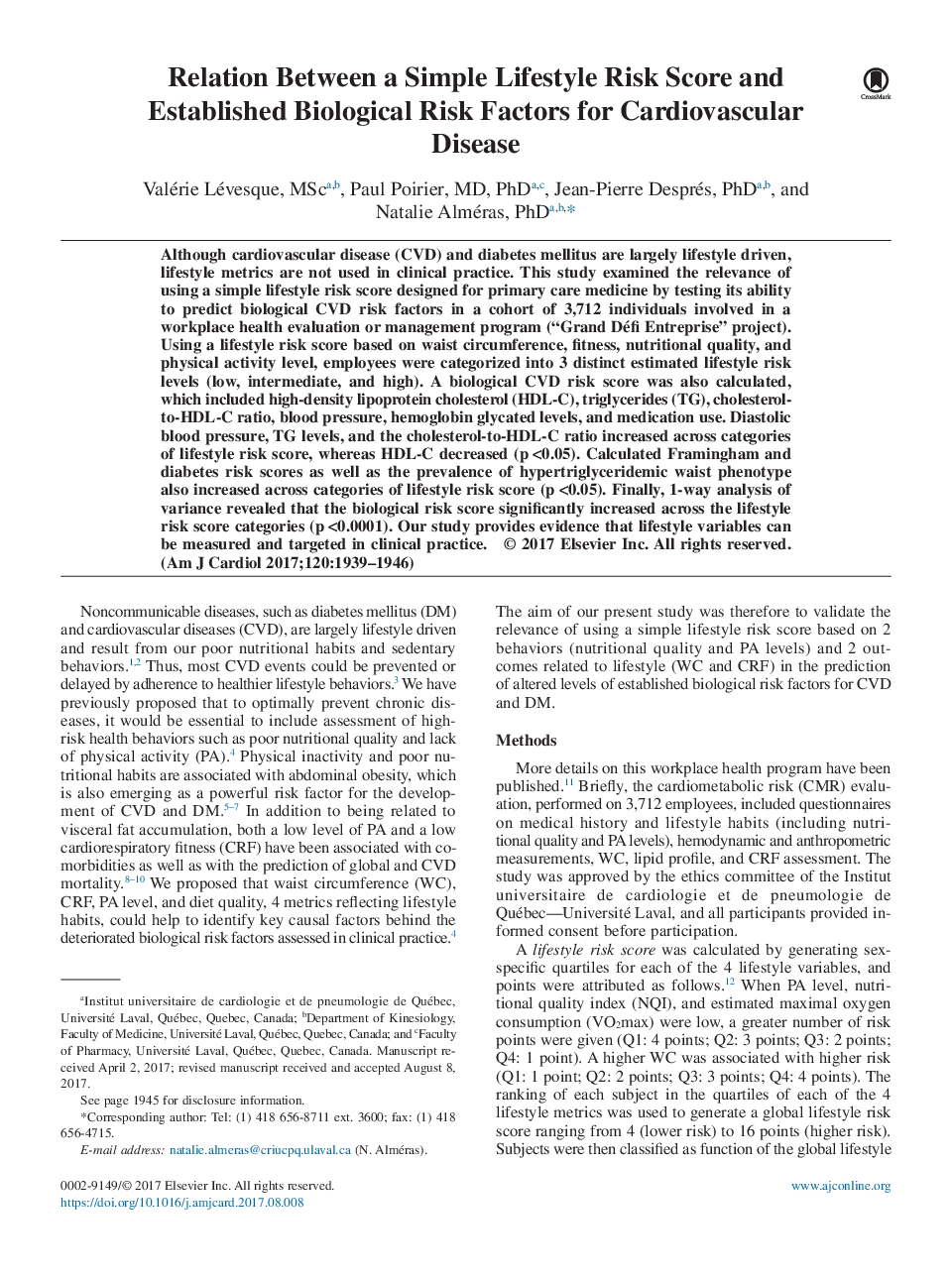| Article ID | Journal | Published Year | Pages | File Type |
|---|---|---|---|---|
| 8651644 | The American Journal of Cardiology | 2017 | 8 Pages |
Abstract
Although cardiovascular disease (CVD) and diabetes mellitus are largely lifestyle driven, lifestyle metrics are not used in clinical practice. This study examined the relevance of using a simple lifestyle risk score designed for primary care medicine by testing its ability to predict biological CVD risk factors in a cohort of 3,712 individuals involved in a workplace health evaluation or management program (“Grand Défi Entreprise” project). Using a lifestyle risk score based on waist circumference, fitness, nutritional quality, and physical activity level, employees were categorized into 3 distinct estimated lifestyle risk levels (low, intermediate, and high). A biological CVD risk score was also calculated, which included high-density lipoprotein cholesterol (HDL-C), triglycerides (TG), cholesterol-to-HDL-C ratio, blood pressure, hemoglobin glycated levels, and medication use. Diastolic blood pressure, TG levels, and the cholesterol-to-HDL-C ratio increased across categories of lifestyle risk score, whereas HDL-C decreased (pâ<0.05). Calculated Framingham and diabetes risk scores as well as the prevalence of hypertriglyceridemic waist phenotype also increased across categories of lifestyle risk score (pâ<0.05). Finally, 1-way analysis of variance revealed that the biological risk score significantly increased across the lifestyle risk score categories (pâ<0.0001). Our study provides evidence that lifestyle variables can be measured and targeted in clinical practice.
Related Topics
Health Sciences
Medicine and Dentistry
Cardiology and Cardiovascular Medicine
Authors
Valérie MSc, Paul MD, PhD, Jean-Pierre PhD, Natalie PhD,
